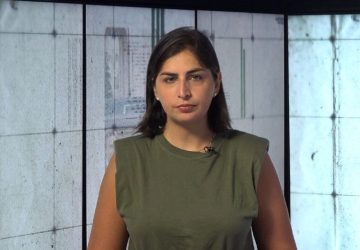Why did Israel extend its air raids to the Bekaa and suddenly start bombing Baalbeck, a Hezbollah stronghold, targeting arms depots belonging to the pro-Iranian formation?
For some, this escalation in the conflict between Israel and Hezbollah is linked to the downing of the Israeli Hermes 450 surveillance drone, which was shot down for the first time by Hezb on Monday in Iqlim el-Touffah, far from Baalbeck, using a surface-to-air missile.
A rather simplistic explanation, according to security sources who see this widening of the radius of Israeli targets as part of the Hebrew state’s attempts to drag Hezbollah to retaliate, which would give it a pretext for widening its field of operations in Lebanon, independently of a truce in Gaza.
This analysis is based on specific facts, including the threats made the previous day by Israeli Defense Minister Yoav Gallant against Lebanon. “We plan to increase firepower against Hezbollah, which cannot replace the cadres we are liquidating,” he announced during a visit to the headquarters of the Israeli Army’s Northern Command.
According to him, these strikes will continue even if a truce is established in Gaza and an agreement for an exchange of hostages and prisoners is reached between Tel Aviv and Hamas. “The objective is simple: to push Hezbollah back to where it belongs. Either by agreement or by force,” he said.
These threats are fueling Western concerns, which Washington echoed on Thursday. American authorities and intelligence services fear that Israel could invade Lebanon in late spring or early summer if current diplomatic efforts fail.
The United States, which is in the midst of preparations for the November 5 presidential election, is exerting sustained pressure on Israel for a settlement in both Gaza and southern Lebanon. Iran, Hezbollah’s sponsor, has also already made it clear through its Foreign Minister, Hossein Amir-Abdollahian, that it does not want the conflict to escalate. Tehran is more interested in a political settlement that would enable it to generate strategic gains, having scored a point against Israel with the October 7, 2023, operation carried out by its ally, Hamas, against Israel.
It is therefore important to him that the military conflict on the southern border remains limited to the rules of military engagement that Israel is seeking to break.
But diplomatic sources in Beirut indicate that Hezbollah remains vigilant not to fall into the Israeli trap. Its attacks and retaliation to Israeli bombardments remain limited to military positions in Galilee, Shebaa, or open areas in northern Israel, even when civilians are killed in Lebanon.
The bombing of Safad in the Galilee on February 14, which killed one person and wounded eight, was not claimed by Hezbollah.
According to the same source, the militia would like to see a truce in Gaza extended to the southern border, which it sees as a support front rather than a confrontation front.
Nevertheless, should Israel launch an open confrontation, the Hezb would retaliate with strikes deeper inside Israel, according to its circles.





